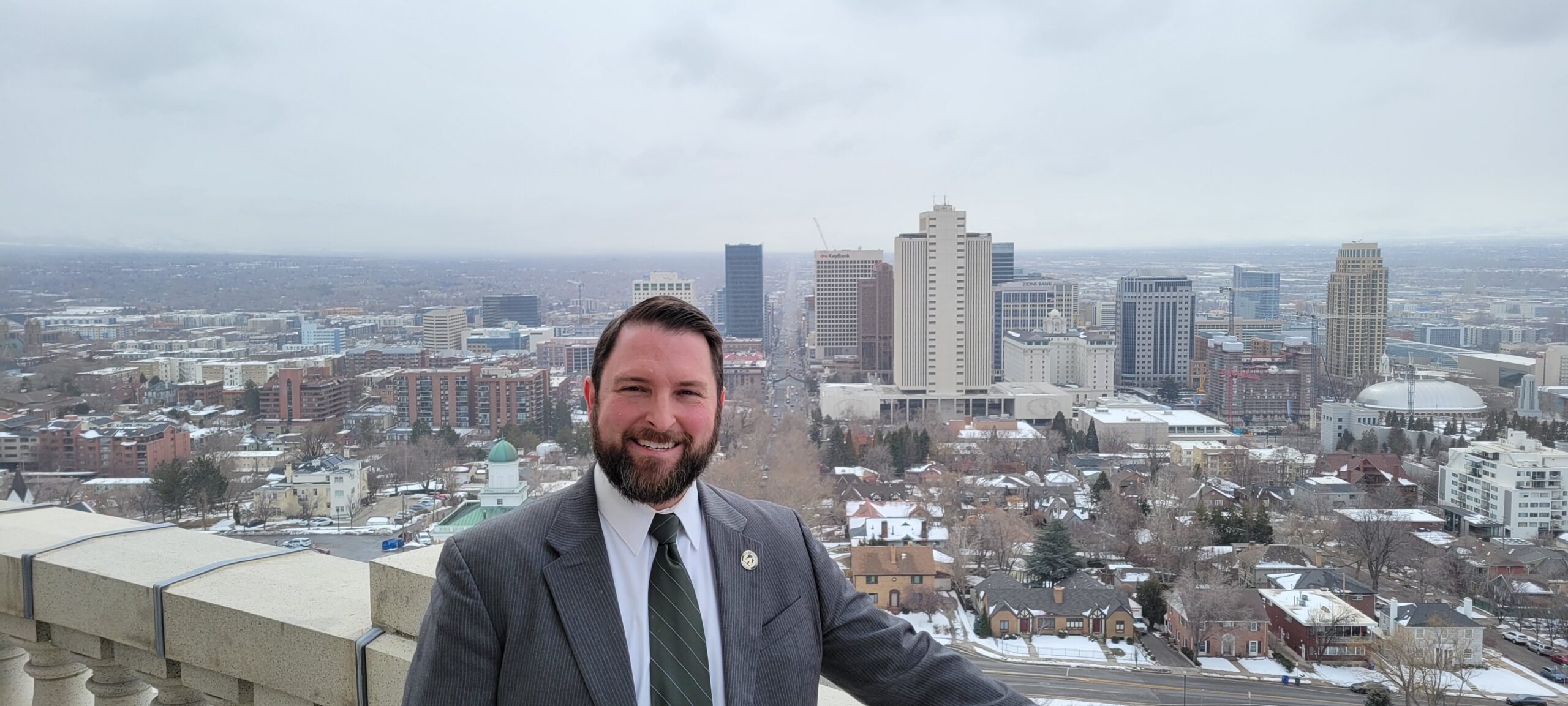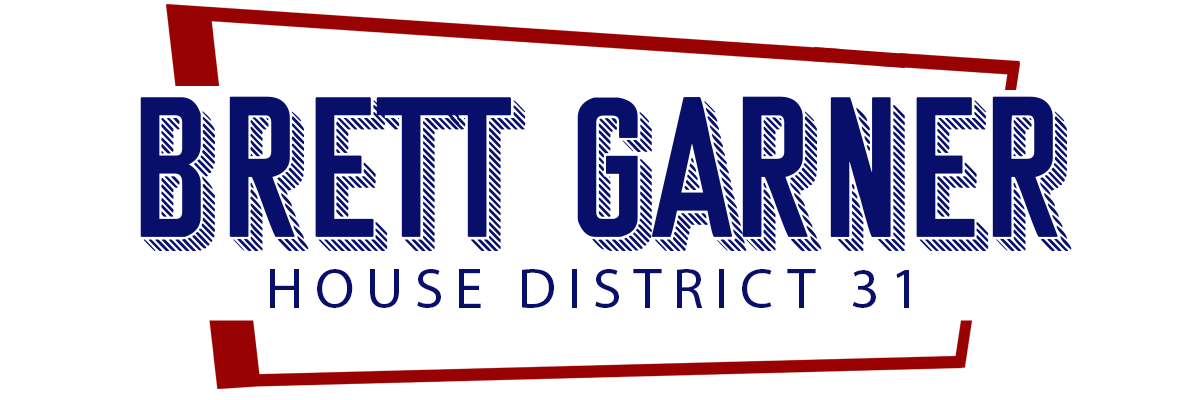I have to admit that I was unable to pass any of the bills that I sponsored. This is disappointing, obviously, but I have heard enough from other representatives—of both parties and chambers—that many times it takes several years to get legislation passed.
This is especially true for the bills that propose major changes to the way things are going now, which is what many of my sponsored bills sought to do. I am extremely grateful for everyone who reached out to me and other legislators to express support for my efforts.
Here’s a rundown of what happened to these bills and my plans for future proposals.

HB201 Traffic Enforcement Amendments
Allows for the phased return of automated safety enforcement, beginning with a one year pilot program in 5 school zones and the 5 construction zones on state roads.
The first violation would result in a warning being sent to the vehicle owner. Additional violations would receive citations and fines but not accumulate to points on driving privileges.
Funds from citation revenue would be split, with 60% going to UDOT’s Zero Fatalities Initiative, and the remaining 40% going to operating expenses.
Cameras would only be operational during school zone activation, and footage could only be used as evidence for traffic violations and not for any other use.
Finally, cities may choose to allow an automated safety enforcement system on a local road as well, but only in school and construction zones, as well.
With a number of crossing guards and students being hurt or killed in the past few years, as well as roadworkers being injured on the job, speed if often the deciding factor in this violence.
Automated safety enforcement has been successfully used through the US and Canada.
- Albuquerque, New Mexico Mayor’s office recent analysis of their successful program.
- Paradise Valley, Arizona (home of Barry Goldwater and Doug Ducey) had the first automated safety enforcement program in 1987, with demonstrable success and increased public support every year of operation.
- An article about New York City’s recent analysis of their expansion of their program to 24/7 enforcement resulting in a 25% drop in traffic deaths and a 30% drop in citations for speeding (and yes—fewer citations is a goal because it means less speeding).
- A 2010 study of effectiveness of automated speed enforcement by a review of all available literature to that point, “the consistency of reported reductions in speed and crash outcomes across all studies show that speed cameras are a worthwhile intervention for reducing the number of road traffic injuries and deaths.”
- Toronto’s program evaluation showing reduction of speeders in school zones, excessive speeding down 80%.
After working with the Administrative Office of the Courts, Police Chiefs, Prosecutors, the Utah PTA, and many more to try to get it heard in Transportation Committee, the chair still refused to place it on a meeting agenda. I will work with others to get the bill finalized next year, and possibly seek another committee to hear it.
HB168 Accessibility of Campaign Finance Disclosures
Requires the State Elections Office to allow the public to search for campaign contributions by contributor. Currently, all candidates for any state office, county and state political parties, and political action committees must disclose their contributors. From 2000-2007, the State Elections Office had a tool that allowed the public to search who gave money by contributor. The website was upgraded for the 2008 cycle and has since been unable to easily search by contributor. Most states throughout the nation have this capability, and the State Elections Office is in the process of upgrading the website. This would require them to implement this capability in a future upgrade. It would not affect campaign contribution limits, deadlines, or any other aspect of campaign disclosures.
I believe this type of transparency is long overdue, and will allow the public to better understand who is influencing their elected officials.
The Rules Committee chairman wanted me to work with the Elections Office a little more on a specific date, which I did. When it made it to the Government Operations Committee, the chair refused to place it on a meeting agenda. I expressed my disappointment but not surprise, as stifling transparency became a theme of this year’s session. That committee chairman will be leaving the House (for a state senate run) and I am hopeful I can get a better hearing next year with a different chair.
HB205 Minimum Wage Amendments
This would eliminate the ability of employers to pay less than the minimum wage to disabled individuals. Currently, there are eight employers totaling roughly 544 employees with Federal permission to utilize this exemption. However, several companies have adapted to changes and are paying disabled employees in excess of the minimum wage. Making this change alone would not affect an individual receiving Social Security Disability benefits.
Many states throughout the country have made this change, and I believe we can do it by 2026 without any major issues.
Finally, this is a moral question that we need to decide how much we truly value our disabled neighbors.
Though this was the only bill that had a committee hearing, it did not pass. However, after I got a lot of media coverage on the rejection (Axios SLC, Prism, New America, X96 Radio From Hell), I heard from several legislators and advocacy groups that I should work on this during the interim. I will be asking that it be added to the study list and hopefully we will see this exemption end soon.
HB454 Minimum Wage Modifications
This would create an age-based minimum wage for all non-exempt employees, similar to what Great Britain adopted in 1997. The proposed minimums would be:
- Under 18 years old–$10/hour
- 18-21 years old–$13/hour
- 21-23 years old–$15/hour
- 23 years and older–$19/hour
Additionally, these wages would increase by $0.25 annually.
This bill did not make it out of the Rules Committee. The fiscal note was quite large because of the low wages currently paid by colleges to students employed there. I will likely run a version of this in the future, and will continue to work with business and labor groups on a strategy for finally raising Utah’s minimum wage.
HB498 Firearm Safety in Schools
This would allow high school students to take an optional (both for students and LEAs) credit course in firearm safety, but require that the course include:
- Suicide prevention education, including teaching about local options for voluntarily removing firearms from a household
- Domestic violence threat assessment, including community resources for leaving dangerous situations.
- Safe target shooting practices, including the dangers of wildfire and leave-no-trace principles.
- Previous to enrolling their student, parent/guardians must attend a meeting providing free firearm locks as well as discussing safe storage of firearms, mental and behavioral health resources available at the school and community, and a course overview.
Ammunition may not be on school premises.
If the legislature is unwilling to move on universal background checks, close the gun show loophole, adopt red flag laws, place more liability for misuse of firearms, or many other proven strategies for reducing gun violence (some of which others are going to run bills again), then we must do something. I believe one of the issues is that firearm education is severely lacking, and that firearms ownership is treated too lightly without a recognition that firearms are extremely dangerous.
Additionally, with firearms a leading implement of youth suicide, along with a rise in domestic violence homicides, we need to think about how we can help youth create time and distance between a violent act and a firearm. I was inspired by other countries, such as Switzerland and Israel, who have high rates of firearms ownership but low rates for firearm violence. Many of these countries have many other effective strategies, but this is one step I believe that we can take in this state.
This bill was assigned to the Law Enforcement Committee, but the chairman refused to add it to a meeting agenda. He would not discuss it with me, and I was very disappointed, as this was inspired by a previous Republican proposal. Nonetheless, I will continue to work with advocacy groups on all sides to improve access to firearm safety, prevent youth suicide, and encourage safe storage. It may end up in future legislation.
HB551–Olympic Public Funding Requirements
In an effort to avoid a repeat of the 2002 bribery scandal, this would criminalize using public money going to any of the documented instances from that dishonorable effort. Specifically, it would disallow using any public money to:
• Provide a gift of over $300 to another person
• Make a political campaign contribution in any country
• Pay for the personal expenses (i.e. tuition, travel expenses, etc) of another person
• Purposes unrelated to the Olympic Games
Finally, the host committee would have to provide an itemized accounting of public money used in efforts to obtain a host agreement.
I have no problem with Salt Lake City hosting a future Olympics, but I want us to do it without the problems that happened in 2002. Sadly, many games since have had some sort of financial scandal since, and we need to state clearly that we will not sell out our honor for any event.
The Rules Committee refused to release it because, according to a legislator leading Olympic efforts, the Bid Committee would prefer to operate under the radar as much as possible. Again, this fits with this session’s stifling transparency theme.
HB569–Uniform Premarital Agreement Act Amendments
This is hopefully closing a loophole that may allow a court to enforce a prenuptial agreement even in the case of one partner killing the other. Upon conviction of one party causing the homicide or total incapacitation of the other party, a court shall revoke a premarital agreement, in full or in part.
I went to junior high and high school with Eric Richins, and I was extremely saddened to hear about his death, but was shocked when the charges came out about his potential homicide. Even more, I was concerned that there was some way someone could profit causing the death of their spouse.
This bill simply was drafted too late to have any ability to be heard. I have communicated with victim advocates and will be working on the bill for reintroduction in the future.
